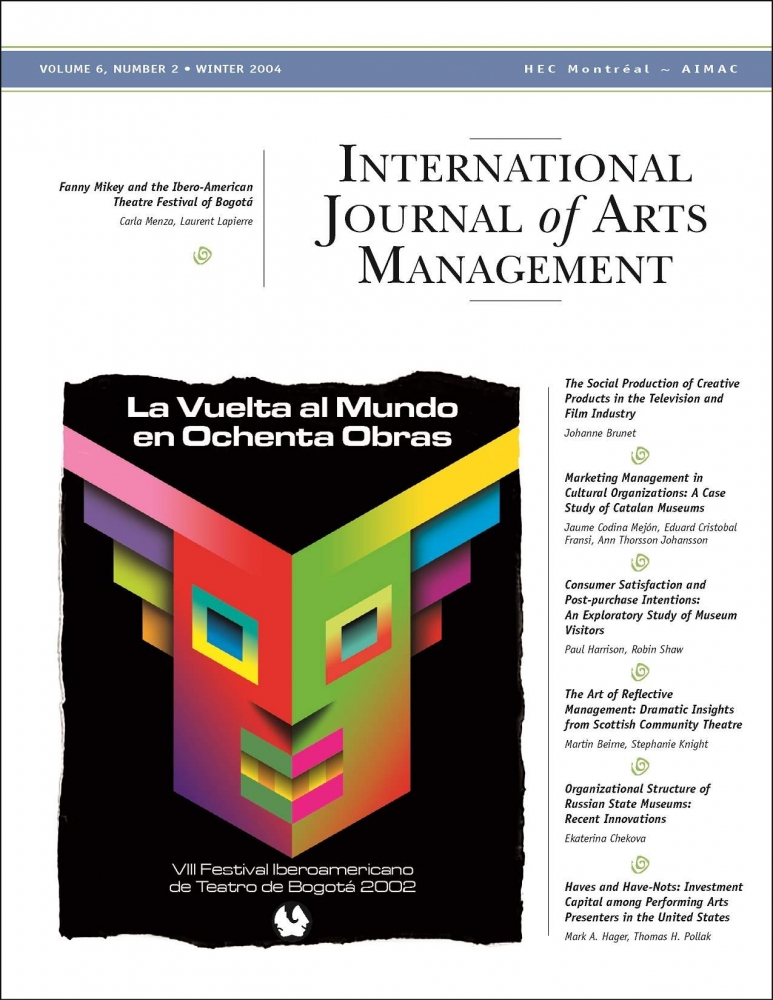IJAM Volume 6 Number 2 (PDF)
Product: Journal
$53.00 CA
EDITOR’S NOTE
Several articles in this issue have as their main or underlying theme the changes imposed on arts organizations by market forces. Whether it be in Russia, Catalonia or Scotland, the evolution of the market in the arts and cultural sector, along with the evolution of political regimes, is forcing arts organizations to adapt.
Consumers of cultural products have developed increasingly sophisticated tastes and today enjoy an unprecedented wealth of choices. Moreover, technological advances have led to increased consumer autonomy. Distribution channels such as the Internet, for example, have given consumers the potential to access an extensive source of cultural goods without an intermediary.
These changes have affected the arts and heritage sector as well as the cultural industries. In the music industry, for example, record producers are grappling with the problem of free downloading of music from Internet sites or through fi le swapping between friends. This phenomenon is not new, having first appeared with the emergence of audio cassettes. However, the sheer power of the Internet as a communications network has turned it into a major problem for music producers.
The only way to survive such environmental changes is to adapt to them, and this is precisely where the basic principles of marketing can prove useful. For example, an understanding of consumer behaviour can help us to identify solutions. Consumers buy benefits, not products. Consequently, we will be able to resolve the problem of free music downloading when we have understood the nature of the benefits sought by consumers and when the products offered incorporate those benefits. Only then will consumers be willing once again to purchase compact discs rather than resorting to downloading. The same principle applies to the arts sector and the competition it faces from cultural industries, as well as to small producers when faced with entertainment conglomerates.
François Colbert
Editor
